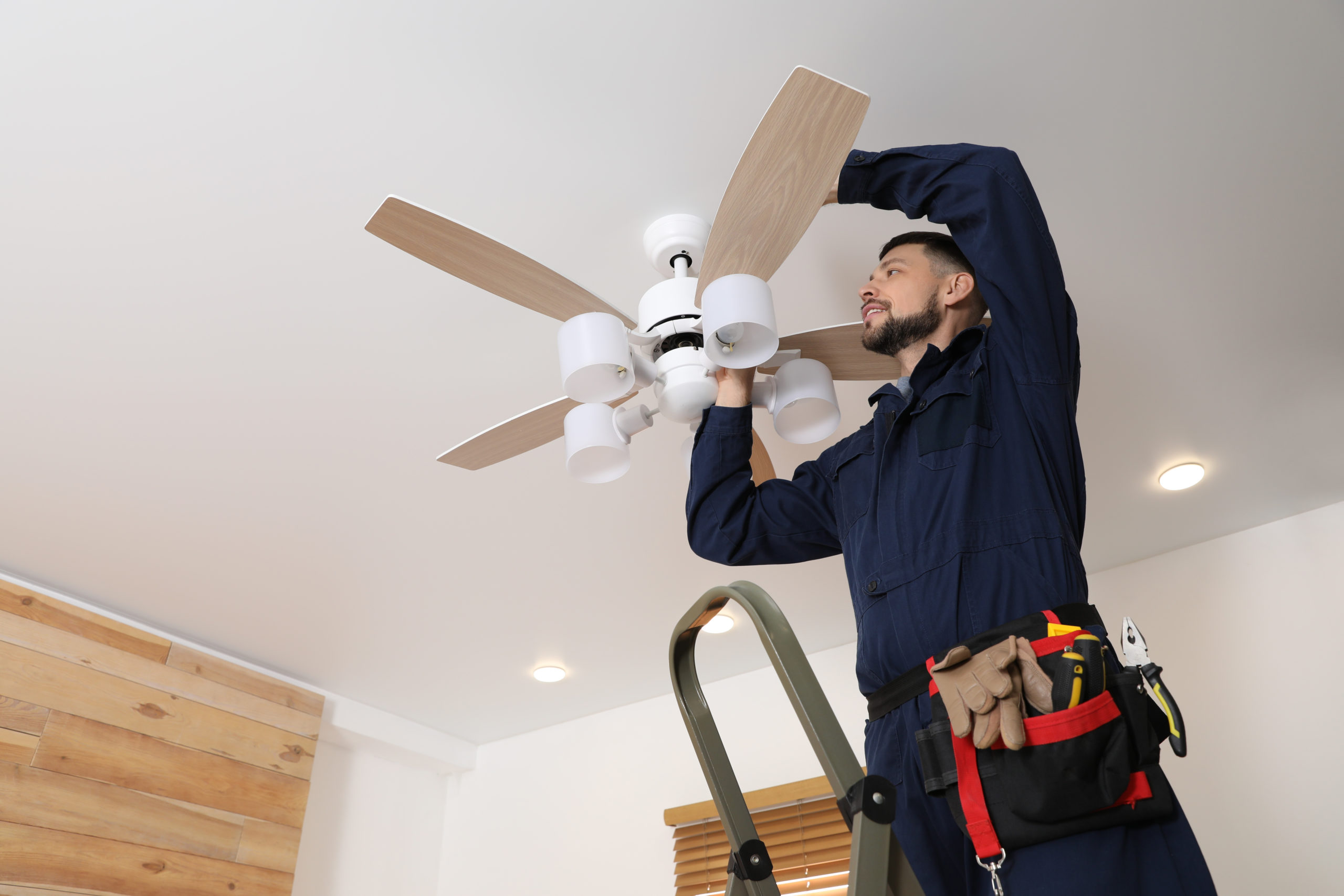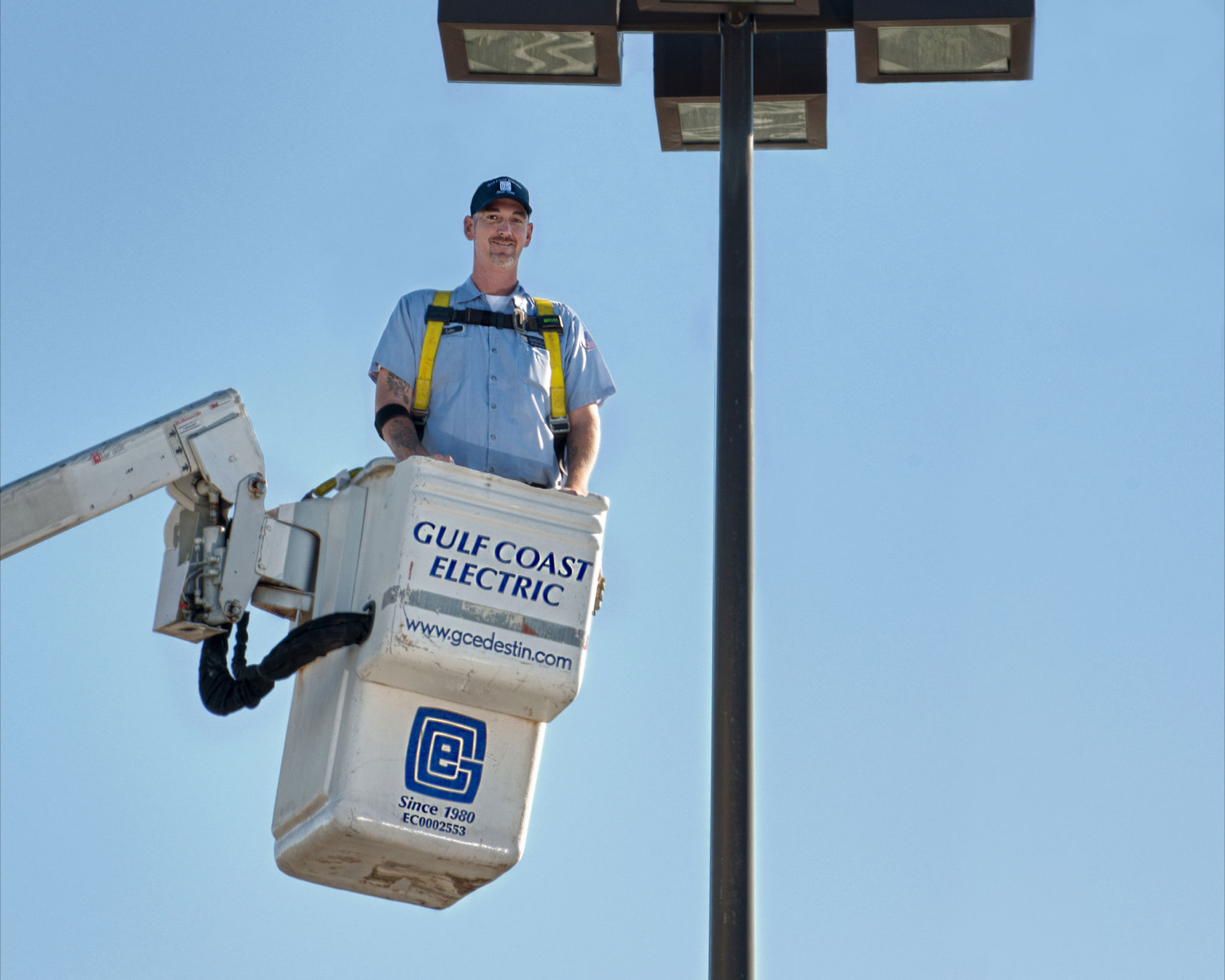DIY home improvement projects can be great for building technical skills. Homeowners can safely repair specific minor electrical issues if they are willing to take on the task. However, some projects may be dangerous to complete without the help of a professional electrician.
Although it can be tempting to try, the process of electrical fan installation has many risks and can be a danger to do on your own.
Gulf Coast Electric prioritizes customer safety and has compiled this guide on why self-installation can be hazardous.
Risks of Self-Installation
Altering electrical wiring is hazardous. It may seem cheaper to tackle the task on your own, but the dangers of self-installation may be just as costly as hiring a licensed electrician.
Unstable Fans Lead to Ceiling Damage
Replacing or adding a new light fixture requires a hole cut in the ceiling. The measurements required must be precise for the hole to hold the fan. Ceiling boxes are also necessary to secure a fan to the ceiling.
Without the proper support, ceiling fans can become wobbly and fall without warning. Not only will this damage the fan itself, but it will likely cause craters and cracks to appear in the ceiling. These issues cause unnecessary and expensive repairs avoided with the assistance of a professional electrician.
Faulty Wiring Can Cause Fires and Electrical Injury
Electrical fan installations require intricate wiring to function correctly. Ceiling fans have different wiring methods, depending on the type of fan. Improper wiring can lead to electrical fires and significantly damage your home. Without the proper safety measures, incorrectly connected wires can cause severe electrical injury.
Extensive Electrical Code Regulations
The National Electrical Code is the standard for safe electrical installations. Professional electricians are familiar with the local electrical requirements in buildings and homes. Those unfamiliar with their local electrical requirements risk installing ceiling fans unsafely or violating electrical codes in their area.
Benefits of Hiring an Electrician
Apart from ensuring that a fan is correctly situated, electricians can usually install ceiling fans in a short time period. Electricians take the proper safety measures into account and meet the standards required from your local electrical code. Electricians are licensed to help you, making the electrical fan installation process much less stressful.
Taking Price Into Account
Price is an important factor for most homeowners. DIY home improvement projects are tempting to take on, especially if they assist in saving money. However, installing a ceiling fan yourself might be more expensive than hiring a professional to do it for you.
Homeowners may have to purchase appliances for fan installation that electricians use daily. Some of these appliances include:
- A ladder
- Measurement tools
- Various pliers
- Saws
- Electrical tape
Additionally, installing a ceiling fan requires a lot of time and patience. Homeowners have lots of responsibilities and the amount of time fan installation takes can be just as costly. Hiring an electrician to install a ceiling fan can help to save you both money and time.
How Can Gulf Coast Electric Help?
If you aren’t sure about ceiling fan installation, the Gulf Coast Electrical team is here to help! We’re here to answer any questions you might have about the process. At Gulf Coast Electric, we aim to provide superior service while putting your safety first. Contact us today to learn more about your options for electrical fan installation!











